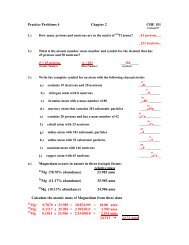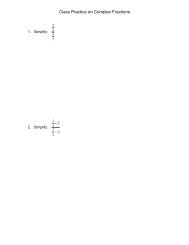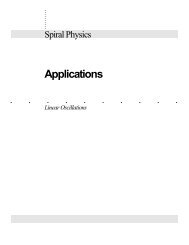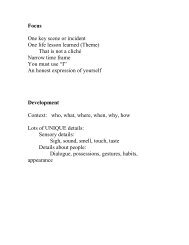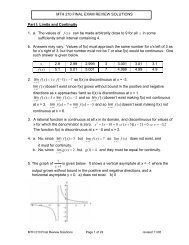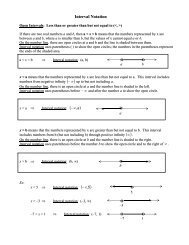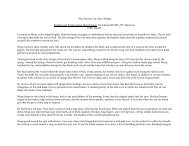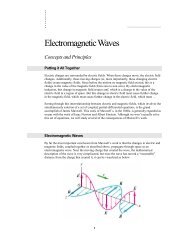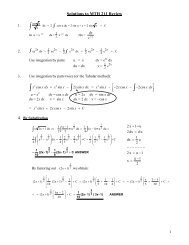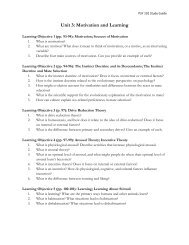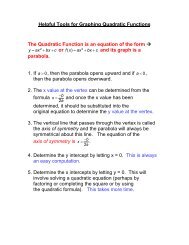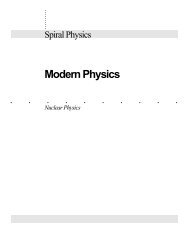Practice Problems 2
Practice Problems 2
Practice Problems 2
You also want an ePaper? Increase the reach of your titles
YUMPU automatically turns print PDFs into web optimized ePapers that Google loves.
4.) A nonvolatile liquid would<br />
a. have weak attractive forces between molecules<br />
b. evaporate rapidly at room temperature<br />
c. have a high vapor pressure at room temperature<br />
d. be a very "explosive" substance<br />
e. have strong attractive forces between molecules _____e_________<br />
5.) Which statement about the boiling point of water is incorrect<br />
a. The boiling point is greater than 100 o C in a pressure cooker.<br />
b. The boiling point is less than 100 o C for locations at low elevations.<br />
c. At sea level and at a pressure of 760 mm Hg, the boiling point is 100 o C.<br />
d. In a pressure cooker, shorter cooking times are required due to the change in<br />
boiling point.<br />
d. The boiling point is a consequence of a molecule's intermolecular forces.<br />
____b__________<br />
6.) Which of the following statements is correct<br />
a. dipole-dipole interactions occur only between nonpolar molecules<br />
b. a hydrogen bond is an extremely weak dipole-dipole interaction<br />
c. London forces are "instantaneous" dipole-dipole interactions<br />
d. Hydrogen bonding occurs between any two hydrogen-containing molecules<br />
____c__________<br />
7.) Which of the following substances would be expected to have the lowest boiling point<br />
a. a nonpolar liquid<br />
b. a polar liquid with hydrogen bonding<br />
c. a polar liquid with weak dipole-dipole interactions<br />
d. a nonvolatile liquid<br />
e. a polar liquid with strong dipole-dipole interactions ____a_________<br />
8.) Which of the following compounds is incorrectly matched with the predominant<br />
intermolecular force associated with that compound in the liquid state.<br />
compound intermolecular force<br />
a. CCl4 dipole-dipole interactions<br />
b. H2O hydrogen bonding<br />
c. BF3 London forces<br />
d. NH3 hydrogen bonding<br />
e. Br2 London forces ____a________



